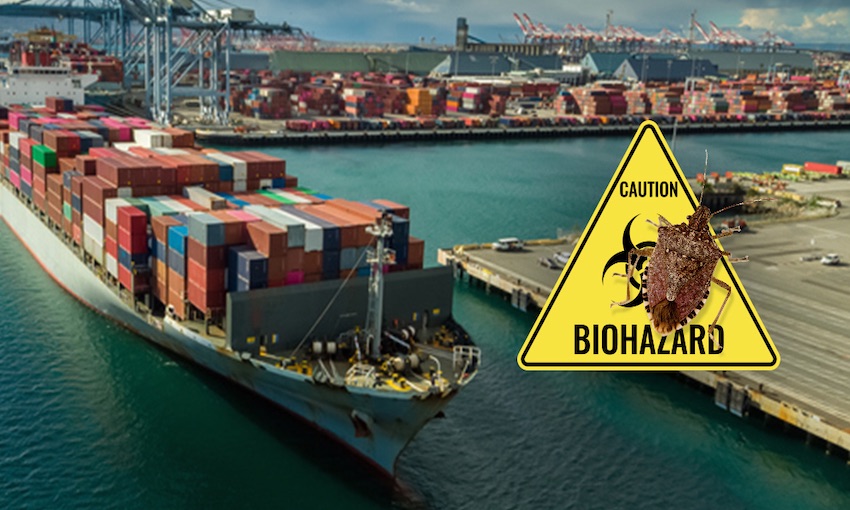THE Freight & Trade Alliance has provided advice on an issue being experienced by the Department of Agriculture, Water and the Environment as the brown marmorated stink bug season commences – profiling/technical issues that are impacting FAK/LCL shipments.
The turning on of BMSB profiles in the ICS has seen LCL entries initiating BMSB concerns on FAK containers and placing them on hold in the system even though the FAK arrived pre-1 September.
The technical issues revolve around the way the ICS profiles FAKs and has links to the issues members faced post the 19/20 season when profiles where turned off however the ICS still flagged FAKs well post 31 May.
Advice from the Department is for Master Consolidators to lodge a “nil-risk” declaration. However issues with the electronic forms on 2 September prevented lodgement. This has now been resolved and you can lodge your declaration if you have a Seasonal Pest Hold in the ICS.
The Department has advised MCs will not be charged for these “nil-risk” declarations.
One of Australia’s largest third-party logistics providers C.H Robinson has advised companies to take into account new guidelines to ensure they comply with BMSB regulations.
“Non-compliance and lack of forward planning were the biggest causes of delays at the Australian border during the 2019-20 BMSB season,” C.H Robinson’s vice president Oceania, Andrew Coldrey said.
“Non-compliance is not an option for businesses wanting to trade internationally.”
While existing treatment regulations remain in place, some new guidelines must be taken into account, including the use of perforated shrink wrap, container packing methodologies altered to allow for fumigation and the encouragement of offshore treatment to reduce delays upon arrival in Australia.
Concerns surrounding the Khapra beetle have also emerged with urgent regulations set to be phased in within the coming months.
“Regulations may be confusing for some businesses; however, having a logistics partner that prioritises compliance without diminishing efficiency is invaluable for importers,” Mr Coldrey said.
“The Australian Trusted Trader logo signifies a business’s commitment to compliance and security throughout its international supply chain.
“Becoming a Trusted Trader provides myriad benefits, including faster clearance at customs and consolidated cargo clearance, which is highly advantageous when facing delays during the BMSB season,” he said.

